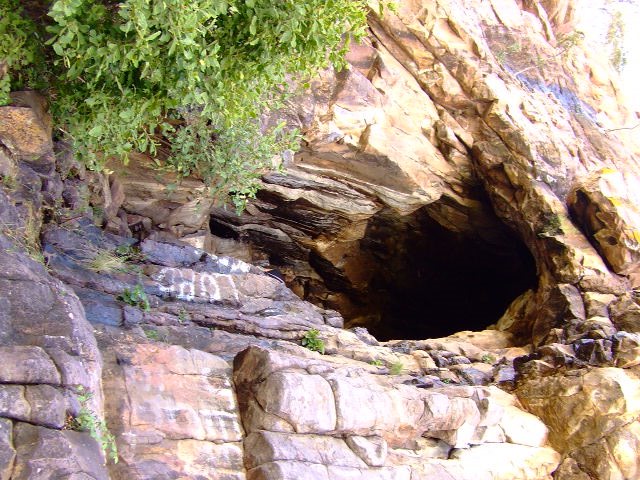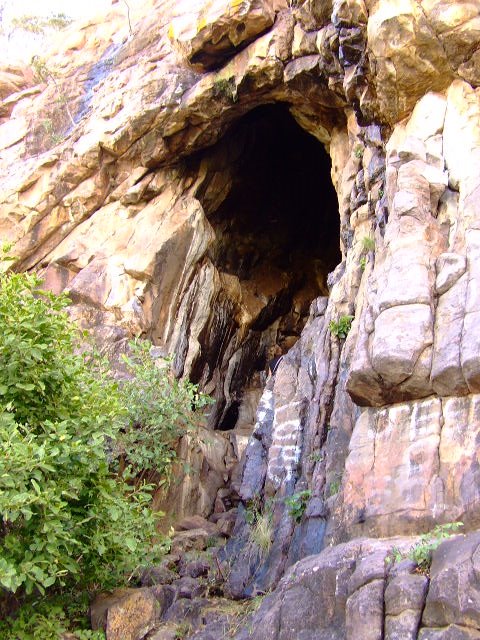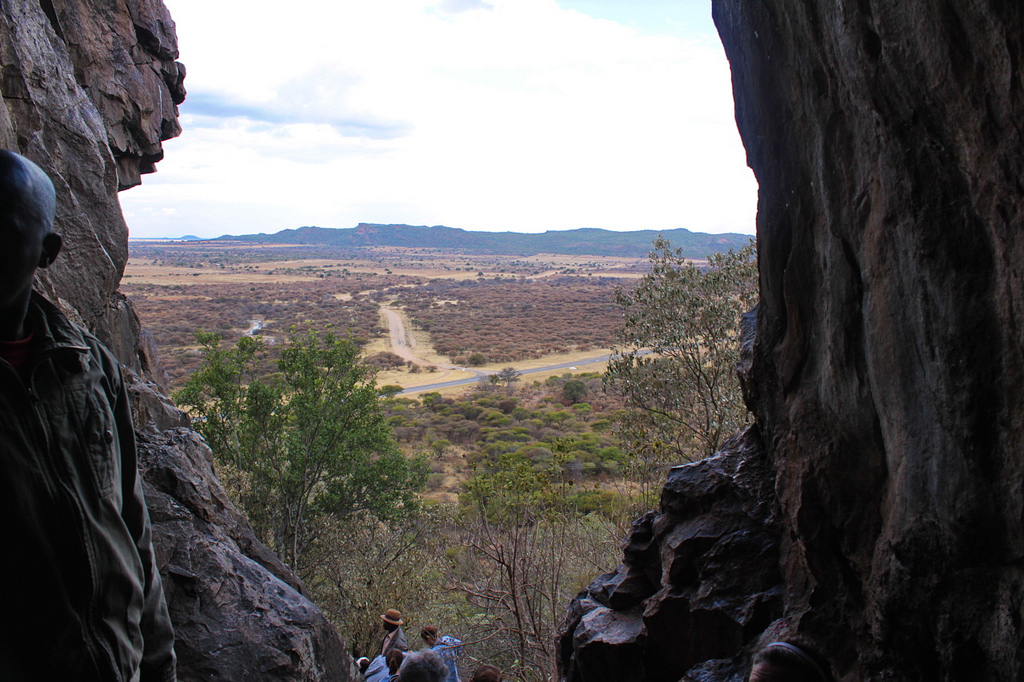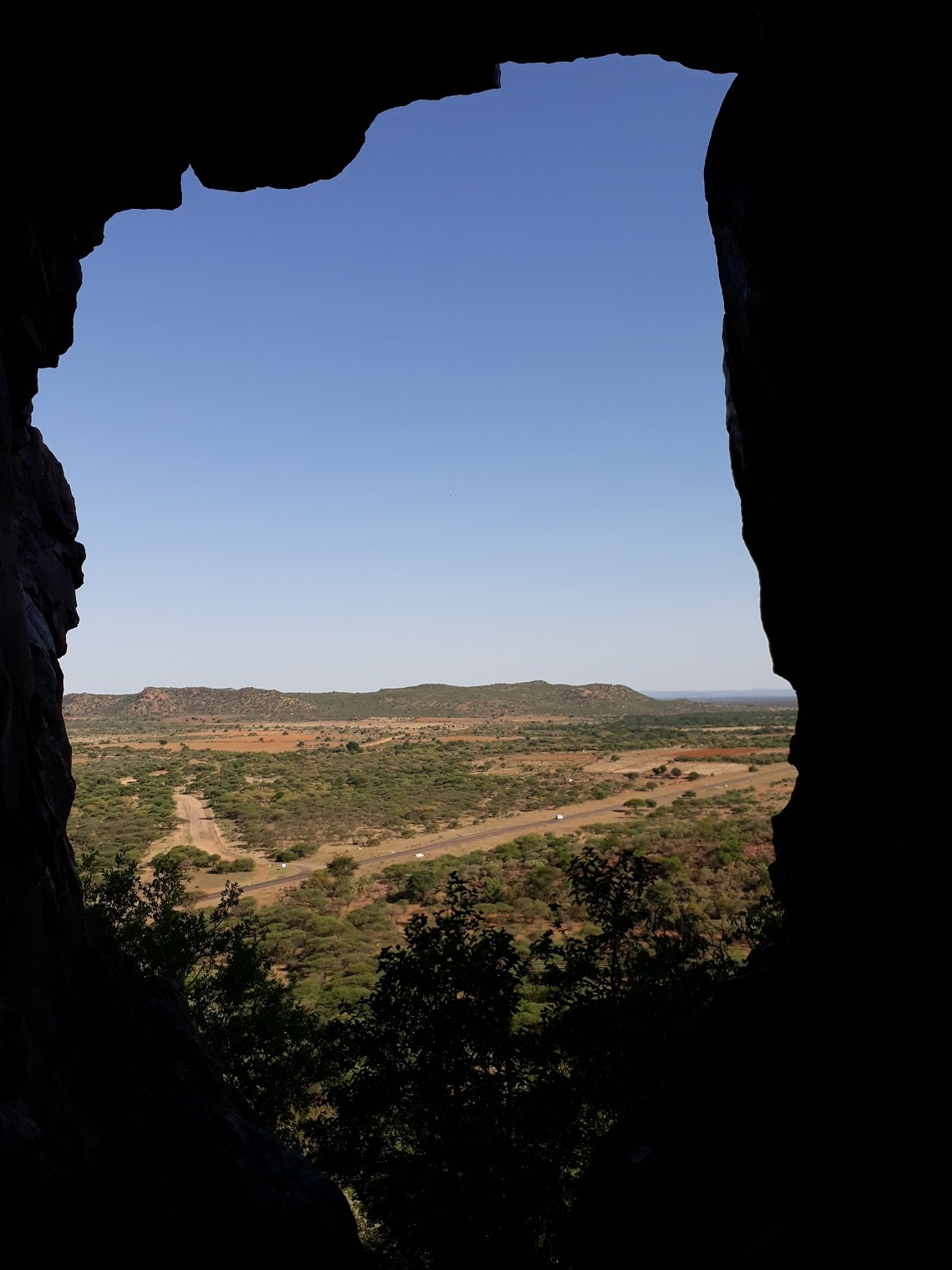Kobokwe's Cave
The historic cave is both a symbol of superstition and black magic and inspired one of the early Christian converts in Botswana.
Kobokwe’s Cave (Legaga la ga Kobokwe in Setswana) plays a dual role in the mythology of Botswana: It is both a foreboding symbol of superstition and black magic, but also as an essential part of the founding of Christianity in the country.
The cave is perched in the hills overlooking the village of Molepolole on the Thamaga Road. Local legend states that it was an execution site for practitioners of black magic, who were pushed off the execution rock nearby, though historians think this is unlikely.
So the story goes a witch named Kebokwe was thrown from these rocks and used her magic to land unharmed. Since that time, dark spirits taking the form of giant snakes have haunted the cave and the surrounding hills. Regardless of its veracity, this legend was alive and well when David Livingstone, the famous physician, missionary, and explorer, arrived in Kolobeng in 1847. He convinced the Kgosi of the Bakwena, Sechele I, to convert to Christianity by spending a night in the cave to prove that the spirits could not harm him. After a restful night, Sechele became Livingstone’s only convert to Christianity.
These days, the cave serves as a curiosity spot for tourists, and a pilgrimage for the faithful in Botswana. After turning off the highway, there is a 15 minute scramble up a well-used path to the cave. A Botswana Heritage sign marks the beginning of the path. The approach is littered with the remains of candles from midnight prayers, and the cave itself is rather small, but always cool with a breeze coming from deep in its chambers. From the nearby execution rocks, there is a view of the bush in the direction of Thamaga and Kanye.
Know Before You Go
Finally, there is a clearly-marked sign designating the cave and parking area. Driving from Gaborone, after arriving in Molepolole on the A12, turn left on the Thamaga Road (F11). Drive about five minutes. After leaving town, you will see the hills and the cave on your right. There is an orange sign labeled Kebokwe Cave pointing to your right. It’s rather small, so you can also use the much larger sign for Moleps Poultry as a landmark. Almost immediately you will see a gravel parking area with a Botswana Heritage sign marking the beginning of the trail. From here it is about a 15-minute hike, with some scrambling at the top. If you have trouble finding the place, the locals of Molepolole will be more than happy to direct you. While you’re in town, you should also check out the Kgosi Sechele I museum, which discusses the history of the Bakwena and the town, as well as the cave. It is housed in the colonial era police station, located right before the turn to the cave on A12. Ref: Atlas Obscura




